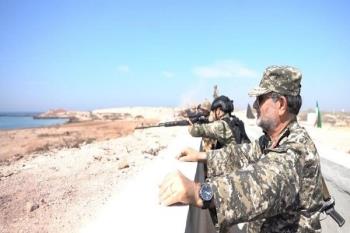Alwaght- Turki al-Faisal, the prominent Saudi prince and former intelligence chief of the kingdom, has attended an annual meeting in Paris organized by the Mojahedin-e Khalgh Organization (MKO), an anti-Iranian terrorist group. A Saudi prince attending is not a strange measure as Riyadh holds broad relations with MKO, but presence of this high-ranking Saudi official in a time that Saudi Arabia has mobilized all of its resources to deal blows to Iran in the region is seen to be another part of Riyadh’s strategy in taking on Iran.
One of the cases that always played an important role in the security and military equations between Iran and Saudi Arabia is the Saudi Arabia's use of proxy groups and organizations for region and home-scale operations which in recent decades and especially in present time have become active on eastern and western borders of Iran. The Saudis have tried to take advantage of this source in a bid to put strains on the Islamic Republic and so to adopt their strategy in West Asia region to curb Tehran.
The presence of Turki al-Faisal at the MKO’s meeting raises a couple of questions: What is behind the Saudi Arabia's move to publicize ties with this highly-weakened terrorist group at the present time? Are Saudis striving after using this terrorist group in their regional proxy war against Tehran? Could this move be considered as a third phase of the Saudi Arabian strategy against the Islamic Republic?
To give good answers to all these questions, we need to point to a greater framework which lays bare the fact about the Saudis’ designing an anti-Iranian strategy which since Tehran’s nuclear negotiations with the world's powers up to now has been implemented in a set of waves and phases. In fact, it indicates that since the nuclear agreement and after failing to foil Tehran’s deal with P5+1 through overt and covert obstructions, the Saudis launched a scenario to hurdle Iran's taking full advantage of the nuclear agreement. The move witnessed its climax when the kingdom offered discounted oil deals to the Asian and European oil purchasers as part of “oil war” against Tehran.
In second phase the Saudis took advantage of the excuses given to them by attacks on the kingdom’s embassy in Tehran and its consulate in Mashhad in northeastern Iran during the protests in the wake of execution of top Saudi Shiite cleric Ayatollah Nimr Baqir al-Nimr. Using diplomatic tools, regional and international organizations and institutions like (Persian) Gulf Cooperation Council, Arab League, Islamic Cooperation Organization and UN Security Council, Riyadh convinced some of Arab, Islamic, and non-Arab countries— including states from Africa— to cut off or decrease level of diplomatic ties with Tehran. The issue even was addressed in the final statement of a meeting of the members of Islamic Cooperation Organization.
Now in third phase which has been launched by strengthening terrorist groups on Iran's western and eastern borders, a series of anti-Tehran moves are expected to be taken by the Saudis in this latest phase.
As ISIS terrorist group is losing ground in Syria and Iraq as its major hotbeds and also as international pressures and public opinion’s strains are building on Saudi Arabia, the kingdom largely loses the potentials to use the terrorist groups against its rival. However, exploiting them always remains an undetachable part of Saudi Arabian strategy in Iran's surrounding vicinity.



























